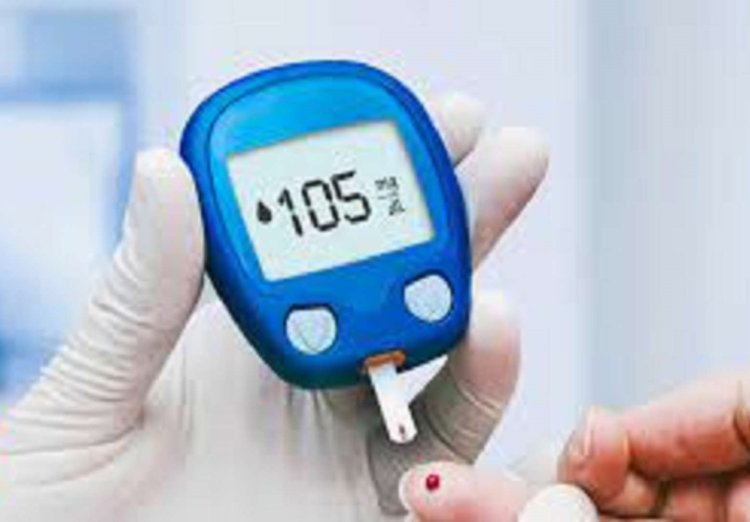'Addressing Lifestyle Disorders: Promoting Health through Individual and Systemic Incentives'
Rising Cases of Lifestyle-Related Disorders in Young Adults Spotlight Health Concerns

A 34-year-old businessman, referred by his general physician, recently visited Dr. Rajiv Kovil's clinic in Mumbai. Dr. Kovil, a diabetologist, regularly treats patients from various walks of life, including a late-night Chinese eatery owner. The patient, despite having no family history of diabetes, was taken aback by his alarming health numbers. His blood pressure measured at 210/110 mmHg, and his sugar levels were at 300 mg/dL—far above the normal ranges of 120/80 mmHg and 140 mg/dL, respectively. Although Dr. Kovil suggested lifestyle changes, the patient chose to seek more tests at different labs, illustrating a prevalent trend of denial among millennials when it comes to health issues. Dr. Kovil notes that many young individuals struggle to accept that conditions like diabetes can affect them, indicating a psychological barrier.
In an era dominated by food delivery apps and remote work setups, modern lifestyles have given rise to an array of health problems, including stress, unhealthy eating habits, disrupted sleep patterns, low physical activity levels, and dependencies on substances and devices. Medical professionals across the nation have observed a significant surge in noncommunicable diseases among young adults, such as early-onset diabetes, heart disease, and hypertension, along with post-pandemic issues like abdominal obesity and weight gain. Dr. Shashank Joshi, a consultant endocrinologist, attributes the rise in conditions like sleep apnea and clinical depression to behavioral changes brought about by lockdowns.
In the span of just two years, from 2019 to 2021, the number of diabetics in India rose by 31 million, and the current national tally of 77 million is projected to skyrocket to over 134 million by 2045. The escalation of Type-2 diabetes over the past three decades has notably contributed to the growing prevalence of diabetes among individuals under 40 years old.
While the connection between diabetes and complications like obesity and heart attacks is widely recognized, recent untimely deaths of individuals like 40-year-old Sidharth Shukla and 35-year-old Chiranjeevi Sarja, coupled with incidents of young people collapsing in gyms, parks, and dance floors across India, have shed light on cardiovascular diseases. These diseases account for a quarter of all deaths in the country.
According to the Indian Heart Association, half of all heart attacks in Indian men occur before the age of 50, with a quarter occurring before the age of 40. Overflowing outpatient departments (OPDs) at medical facilities like AIIMS' cardiothoracic and neuro center provide tangible evidence that heart disease strikes Indians a decade earlier than in other parts of the world.
The crisis deepens with the escalating prevalence of hypertension among the young, not only in urban areas but also in rural communities. One in five young adults in India grapples with high blood pressure, surpassing the corresponding figure in the UK. Furthermore, "systemic hypertension," a significant risk factor for heart and cerebrovascular diseases, contributes to 24% of heart attacks and over 10% of deaths in India. Dr. Hemant Gupta, a professor of medicine, attributes the rise in hypertension to stress and the widespread consumption of sodium-rich processed foods.
Hypertension no longer discriminates by age and affects individuals ranging from schoolchildren to the elderly. Dr. Gupta emphasizes that symptoms like anger, irritability, breathlessness, and chest pain are often dismissed.
The impact of lifestyle disorders extends to mental health as well, as highlighted by clinical psychologist and counseling psychotherapist Seema Hingorrany. She points to cases of chronic fatigue syndrome and aches among those in their 30s. These conditions often go undiagnosed due to a lack of prioritization for health testing among individuals aged 30 to 40, who typically pay less attention to their well-being compared to younger and older age groups.
Shifting lifestyles also give rise to certain lesser-acknowledged consequences, including specific types of cancer and infertility. Dr. Anjali Malpani, an infertility specialist, has observed an increasing number of couples in their 30s seeking assistance. Lifestyle factors such as smoking, excessive alcohol consumption, and obesity can impact sexual health and fertility. Extremes in diet and exercise can also have adverse effects, with some women experiencing ovulation issues, while men's sperm motility can be affected by factors like tight underwear or exposure to high temperatures, such as in saunas.
As India navigates these health challenges, addressing lifestyle-related disorders has become a critical imperative, necessitating proactive measures and increased awareness among all age groups.

 chandni
chandni 



